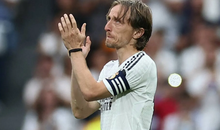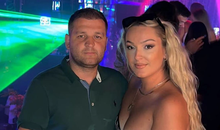
 Flash News
Flash News
The mystery of Renis Dobra's murder, the two main leads of the investigation are revealed
Rama's ultimatum: On Monday, all heads of administrative units must be dismissed
Fires in the country, 4 fires still active, what is the situation?
Rama targets Shkodra prosecutor again: Gjeli wrote philosophical essay with innocence of illegal construction
Wanted for theft, 26-year-old arrested in Durrës
4th election in just 18 months, what you need to know about Sunday's vote in Bulgaria
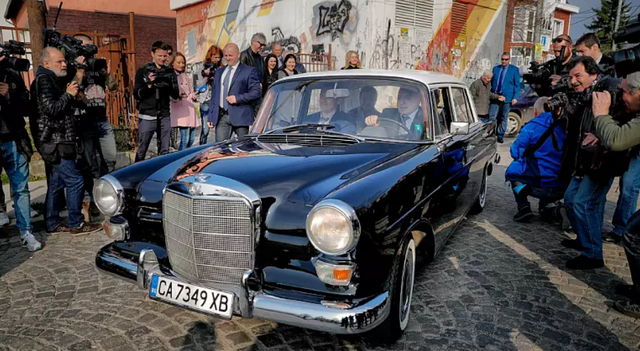
Bulgaria is embroiled in such political turmoil that Sunday's snap election will be the fourth in just 18 months. So what's behind the volatility and is there a solution on the horizon?
How did it reach this point?
Bulgaria, which joined the European Union along with neighboring Romania 15 years ago, had enjoyed relative stability until two years ago. But large-scale and prolonged anti-government protests rocked the country in the summer of 2020.
People accused the government of Boyko Borisov, first elected in 2009, of corruption and backsliding. However, his party Citizens for European Development of Bulgaria (GERB) won the elections scheduled for April 2021.
However, with 20 seats less, Borisov was unable to form a government. Indeed, no party was able to form a coalition to govern. So a snap election was held three months later, where the ITN party, founded by Bulgarian TV presenter and musician Slavi Trifonov, narrowly won the majority of seats.
But another three months later, in November, Bulgarians returned to the polls again after ITN failed to form a coalition government. This led to a new party, We Continue Change (PP), winning and forming a coalition with several other parties, including ITN.
But just over six months after forming a government, ITN pulled out, citing disagreements with coalition partners over the budget and disappointment in progress in tackling corruption.
The head of the ITN Slavi Trifonov also accused the PP of trying to remove the veto for the start of EU accession talks with North Macedonia, ignoring Bulgaria's national interests.
What are the main parties in the election?
Citizens for the European Development of Bulgaria (GERB): The right-wing party of Boyko Borisov, who was Bulgaria's prime minister for more than a decade until 2021.
We continue the change (PP): Kiril Petkov and Asen Vasilev formed this new centrist party just a year ago. She spent six months in government before the ruling coalition collapsed.
There is such a people (ITN): Bulgarian singer and presenter Slavi Trifonov formed this party in 2020, naming it after one of his albums. It triggered the October election when it withdrew from the last governing coalition.
Movement for Rights and Freedoms (DPS): Long-established centrist party that mainly represents the country's Turkish minority
Partia Socialiste e Bullgarisë (BSP): Pasardhëse e Partisë Komuniste Bullgare që ishte një nga partitë në koalicionin më të fundit të qeverisë së vendit.
Rilindja (Vazrajdane): Partia nacionaliste pro-ruse që pritet të dalë shumë mirë në zgjedhjet e parakohshme të tetorit.
Koalicioni i Bullgarisë Demokratike (DB): Koleksion i larmishëm i tre partive -- duke marrë të gjelbërt, liberalët dhe demokratët e krahut të djathtë -- të njohur kolektivisht si "e djathta urbane".
Ngritja Bullgare (BV): Ish-kryeministri në detyrë Stefan Yanev formoi këtë parti konservatore në maj. Disa e përshkruajnë atë si pro-ruse. Yanev u shkarkua nga qeveria e fundit pasi rekomandoi që bullgarët t'i përmbahen përshkrimit të Putinit për luftën në Ukrainë: "një operacion special ushtarak".
Cilat janë problemet kryesore për votuesit?
Sondazhet e fundit tregojnë se shqetësimet kryesore të bullgarëve lidhen me inflacionin, rritjen e çmimeve dhe krizën e afërt të energjisë. Kjo për shkak se norma vjetore e inflacionit të vendit arriti në 15% në gusht.
Ajo po nxitet nga rritja e çmimeve të energjisë pasi Gazprom ndaloi dërgesat e gazit natyror në prill sepse Sofja refuzoi të paguante në rubla.
Në Bullgari, vendi më i varfër ndër 27 anëtarët e Bashkimit Evropian, kostot në rritje të energjisë po i detyrojnë familjet të shkurtojnë shpenzimet shtesë përpara muajve të ardhshëm të dimrit për t'u siguruar që ka para të mjaftueshme për të blerë ushqime dhe ilaçe.
Lidhur me këtë, ka pasur edhe një ndryshim në atë që i shtyn njerëzit të votojnë, thonë ekspertët. Në zgjedhjet e vitit të kaluar, elektorati u nda midis partive që përfaqësonin status quo-në dhe atyre që premtonin ndryshim.
Por lufta në Ukrainë ka ndryshuar gjithçka. "Lufta në Ukrainë ka shkaktuar një ndarje të re në politikën bullgare," tha sociologu Dimitar Ganev.
Pse duhet të kujdeset pjesa tjetër e Evropës për zgjedhjet e Bullgarisë?
Thyerjet që po përcaktojnë politikën e Bullgarisë përforcojnë më tej opozitën dhe me ndarjen e votave midis më shumë partive që bëjnë parashikime për rezultatin përfundimtar është më e vështirë, sipas shkencëtares politike Teodora Yovçeva.
Kjo, shton ajo, duhet të japë një paralajmërim për pjesën tjetër të Evropës.
"Bullgaria po hyn në një spirale në rënie të zgjedhjeve dhe ky është një fenomen që ka të gjitha gjasat për t'u përhapur në pjesë të tjera të Evropës," tha Yovçeva.
Kush ka gjasa të dalë triumfues nga zgjedhjet në Bullgari?
Aleanca politike GERB-SDS kryesoi një nga sondazhet e fundit të opinionit nga Gallup International më parë në shtator. Parashikohet të marrë 25.8% të votave, e ndjekur nga Ne Vazhdojmë Ndryshimin (PP) me 16.6%.
Ndërkohë, partia pro-ruse Rilindja (Vazrajdane) dhe Lëvizja për të Drejta dhe Liri (DPS) parashikohet të marrin rreth 13%.
Simeonov tha se një nga pikëpyetjet e këtyre zgjedhjeve është se çfarë ndodh me partitë e këngëtarit bullgar Slavi Trifonov (Ka një popull të tillë - ITN) dhe ish-kryeministrit në detyrë Stefan Yanev (lëvizja pro-ruse, e quajtur Ngritja Bullgare)
ITN is facing a record loss in vote share. During last year's elections, it was the second largest party. It may now struggle to reach the 4% threshold to enter parliament. The main slogan of the party is the transformation of Bulgaria from a parliamentary republic to a semi-presidential republic.
In Bulgaria, when a government falls and a new one cannot be agreed upon, the constitution says the president must appoint an interim and temporary cabinet to govern until new parliamentary elections are held.
Bulgaria's president, Rumen Radev, has therefore recruited three of the country's most recent coalitions, making him a key figure in the political turmoil that has gripped the EU country in recent years.
Source: Euronews
Latest news

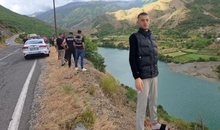
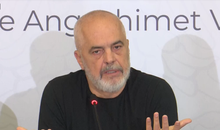
Rama's ultimatum: On Monday, all heads of administrative units must be dismissed
2025-07-11 11:05:59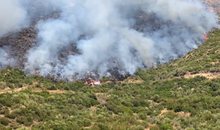
Fires in the country, 4 fires still active, what is the situation?
2025-07-11 10:56:23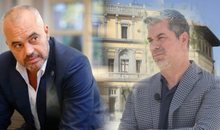
Government irony: Rama strips Dredha of power, then demands law and order
2025-07-11 10:49:10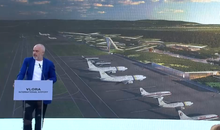
German media: Vlora Airport 'kills' one of Europe's largest wetlands!
2025-07-11 10:37:46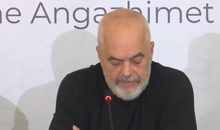
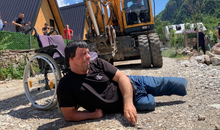
Amid the Alps in Theth, the law punishes even those who try to respect it
2025-07-11 10:14:16
Wanted for theft, 26-year-old arrested in Durrës
2025-07-11 10:03:29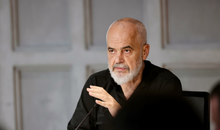
After the dismissals, Rama gathers the mayors in Durrës
2025-07-11 09:42:29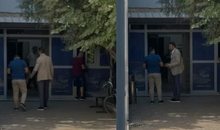
Released on bail, Salianji appears before the Probation Service
2025-07-11 09:34:28
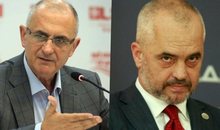
Haxhi Qamil Rama and the directors of the Municipalities!
2025-07-11 09:21:35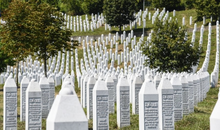
30 years since the Srebrenica massacre in Bosnia and Herzegovina
2025-07-11 09:10:52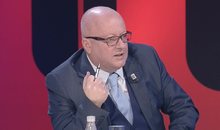
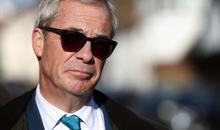
From rhetoric to brandy, POLITICO: 9 things Nigel Farage can do in Albania
2025-07-11 08:53:35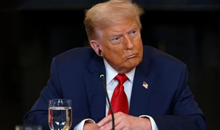
Trump announces 35% tariffs on Canadian goods
2025-07-11 08:39:29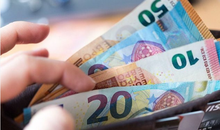
Foreign exchange, how much foreign currencies are sold and bought today
2025-07-11 08:24:25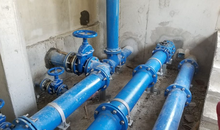
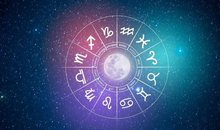
Horoscope, what do the stars have in store for you today?
2025-07-11 07:59:39
Sun and high temperatures, weather forecast
2025-07-11 07:41:09
Morning Post/ In 2 lines: What mattered yesterday in Albania
2025-07-11 07:20:14
Zhupa: In Theth, some Austrian strategic investors want the empty area
2025-07-10 22:57:08
Malltezi: SPAK admits, we are in a process that began with Balla's false report
2025-07-10 22:34:16

Si të çliroheni nga bllokimet emocionale me anë të ushtrimeve
2025-07-10 21:57:24

Lala: Veliaj wanted to return as mayor
2025-07-10 21:40:46

VIDEO/ Brawl in Bolivian parliament, deputies physically clash
2025-07-10 21:20:30


Albania experienced one of the longest heat waves of the last decade
2025-07-10 21:01:09

The Government approves new procedures for declaring residence in e-Albania
2025-07-10 20:39:32

Koka: Northerners will not forget Edi Rama's racist operation in Theth
2025-07-10 20:18:24
The 3 zodiac signs that will be most affected by the 'Full Moon' of July 10
2025-07-10 20:04:49
New director of the National Center of Cinematography appointed
2025-07-10 19:51:12
Korça/ 40-year-old man jumps from fifth floor balcony, in critical condition
2025-07-10 19:40:19
'Tired Woman'/ The Syndrome That Affects Thousands of Women Every Day
2025-07-10 19:34:02
Jane Birkin's original Hermès bag sells for $10 million
2025-07-10 19:26:22

Britain-Ukraine agreement signed for 5,000 Thales missiles
2025-07-10 19:00:25
Fire in Zvërnec, flames endanger two hotels
2025-07-10 18:57:19
Croatia restores compulsory military service
2025-07-10 18:39:01
Spahia: The great truth of the strong accusation of the residents of Theth
2025-07-10 18:35:07


The Supreme Court left him in prison, Meta addresses the 'Constitution'
2025-07-10 17:57:21
New punishment with 'new' regulations
2025-07-10 17:54:46
EU translator fired over fears for Zelenskyy's safety
2025-07-10 17:45:37
'You are a policeman, but not God, take my soul', protest for Agon Zejnullahu
2025-07-10 17:41:21


Video/ Rama repeats the scenario, kneels before Meloni again
2025-07-10 16:56:31
He set fire to a plot of olive trees, 50-year-old man arrested in Shijak
2025-07-10 16:46:19

Rubio: US and Russia have exchanged new ideas for Ukraine peace talks
2025-07-10 16:36:20
Death of 27-year-old, Lipjan Police Commander Resigns
2025-07-10 16:21:28
Video/ An apartment burns in Tirana near the New Bazaar
2025-07-10 16:09:36


Jensila lights up the internet with her birthday greetings to Ledri
2025-07-10 15:42:08
They're full of pesticides! List of 12 products we need to be careful of
2025-07-10 15:31:04

Worker falls from scaffolding in Shëngjin, urgently sent to Trauma
2025-07-10 15:11:03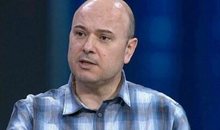
Malltezi: Within one day they seized my accounts, properties and shares
2025-07-10 15:01:23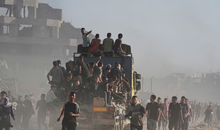
EU: Israel has agreed to more aid to Gaza
2025-07-10 14:55:19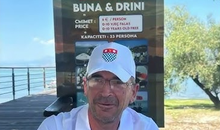
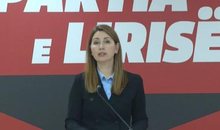
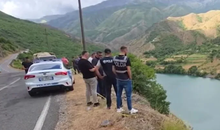
Murder of Reni Dobra, 23-year-old's vehicle pulled from the water
2025-07-10 14:29:23
Trump's tariffs on Brazil raise coffee prices
2025-07-10 14:16:07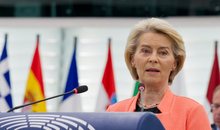
Ursula von der Leyen survives no-confidence vote
2025-07-10 14:04:27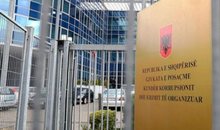

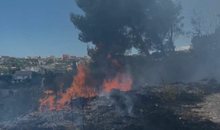
Fire in Lezha, flames near electrical substation
2025-07-10 13:32:24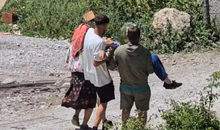
Residents clash with police in Theth, a woman faints
2025-07-10 13:24:38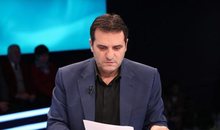
"Rama and Xanun"
2025-07-10 13:15:46

Zodiac signs most likely to get divorced in July 2025
2025-07-10 12:45:51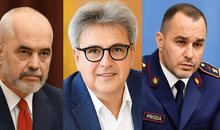
A scapegoat for an illegitimate Republic
2025-07-10 12:35:02
"He has devastated his own nation"/ Berisha: Rama imprisons his opponents!
2025-07-10 12:26:54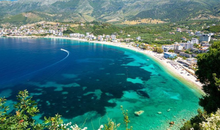

Albanian man injured with knife in Italy
2025-07-10 12:08:55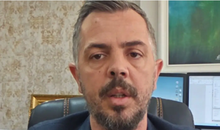
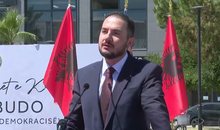
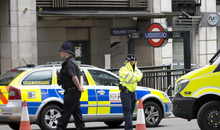

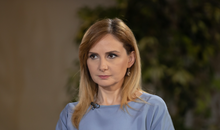
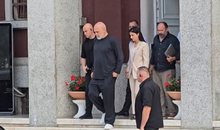
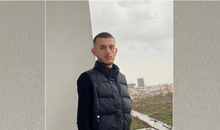
23-year-old in Mat drowned with rope, 4 suspects are being held
2025-07-10 10:58:53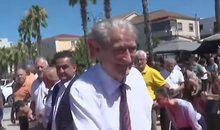
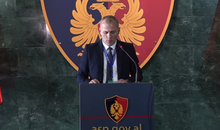
After the dismissals, the new director of the Shkodra Police is appointed
2025-07-10 10:30:10
BIRN: Rama's action for public spaces, a repeated spectacle
2025-07-10 10:29:11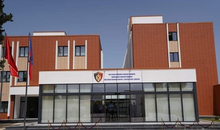
Action in Theth, Shkodra Police leaders dismissed
2025-07-10 10:16:28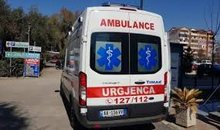
Fatal accident on the Tirana-Durres highway
2025-07-10 10:01:58
The incinerator does not exist, but the government continues to increase funds
2025-07-10 09:51:45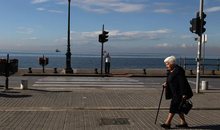
Albania is aging at a rapid pace! 30% of the population is over 60 years old
2025-07-10 09:46:23